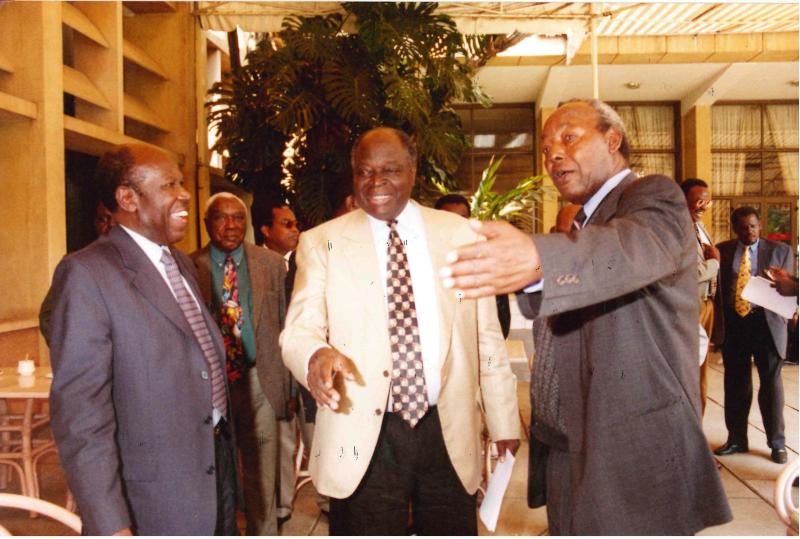×
The Standard e-Paper
Stay Informed, Even Offline

Former State House Comptroller John Matere Keriri, the late President Mwai Kibaki (centre) and ex-Cabinet Minister John Michuki [File]
Former State House Comptroller and late President Mwai Kibaki’s long time friend John Matere Keriri remembers him as a man who had the interest of Kenya at heart.